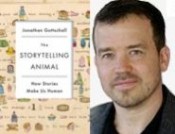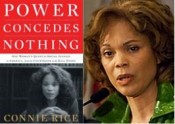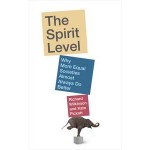Q&A: JONATHAN GOTTSCHALL, Author – THE STORYTELLING ANIMAL: How Stories Make Us Human
Written on May 23rd, 2014 |
Aired 12/02/12
Last July in an interview with Charlie Rose, President Obama said that “the mistake” of the early years of his presidency was his failure to be a better storyteller.
“The mistake of my first couple of years was thinking that this job was just about getting the policy right. And that’s important, but the nature of this office is also to tell a story to the American people that gives them a sense of unity and purpose and optimism, especially during tough times.” In a second term, he said, he would “spend more time with the American people, listening to them, but also being in a conversation with them about where do we go as a country?”
This week’s show is not about Obama or politics. It’s about story and narrative. My guest is JONATHAN GOTTSCHALL author of THE STORYTELLING ANIMAL.
The late evolutionary biologist Steven Jay Gould called humans “the primate who tells stories…” And it’s not just Gould. Anthropologists have found societies that have existed for millennia without the wheel, but they’ve never found one that doesn’t tell stories.
My website leads with a quote: “On the radio, I tell stories of a world that just might work. As a consultant, I help you tell yours.” Building on time as a teacher, two decades in the entertainment industry, and 15 years of radio interviews, I help non-profits, foundations, public agencies, and businesses to tell better stories and build better narratives.
I’m eager to learn from Jonathan what the latest science has to tell us. Why is narrative so powerful? What is its evolutionary value? And can what we’re learning help us get even better at tapping its power?
Q&A: Connie Rice – author, Power Concedes Nothing
Written on March 2nd, 2014 |
Originally Aired: 04/01/12
Too often problems are not solved, solutions are not found or implemented, and money, lives and moments of opportunity are wasted.
CONNIE RICE has taken on school and bus systems, Death Row, the states of Mississippi and California, and the LAPD – and won. Not just in court but also on the streets and in prisons, where she has spearheaded campaigns to reduce gang violence. She has long been dedicated, in her words, to finishing what Martin Luther King Jr started, and she pursues that aim with a focused passion, intelligence, and commitment.
Too often we oppose each other rather than looking for every opportunity to align to solve a problem. Rice sues a model of law enforcement that dominated Los Angeles for decades. In response, the model begins to shift. She then works with — and finally — within LA Law Enforcement. The model shifts some more. Such movement calls for the right sequence of opposition and cooperation, the strategic use of the tools available, and the ability of both sides to shift from litigation to collaboration.
http://powerconcedesnothing.com
Q&A: RICHARD WILKINSON & KATE PICKETT, Authors – The Spirit Level: Why More Equal Societies Almost Always Do Better
Written on March 2nd, 2014 |
Originally Aired: 01/31/10
RICHARD WILKINSON & KATE PICKETT authors of an important new book: The Spirit Level: Why More Equal Societies Almost Always Do Better
In the UK, the Guardian says The Spirit Level “might be the most important book of the year, and The New Statesman named it one of the top ten books of the past decade.
Based on thirty years’ research, The Spirit Level shows that unequal societies are bad for the well-off as well as the poor, when it comes to health and social problems, child well being, life expectancy, infant mortality, obesity, educational scores, drop out rates, illegal drug use, mental illness, homicide, incarceration, CO2 emissions, recycling, social mobility, innovation, and levels of trust.
The good news: If all these ills are related to one measure – income inequality, then, decreasing inequality should be the central goal of our politics because we can be confident that it works.
RICHARD WILKINSON has played a leading role in international research on inequality. He studied economic history at the London School of Economics before training in epidemiology, and is Professor Emeritus at the University of Nottingham Medical School and Honorary Professor at University College London.
KATE PICKETT is a senior lecturer at the University of York and a National Institute for Health Research Career Scientist. She studied physical anthropology at Cambridge, nutritional sciences at Cornell and epidemiology at Berkeley before spending four years as an Assistant Professor at the University of Chicago.
Free Forum Q&A: TERRENCE McNALLY Turning the tables, my turn to answer Qs interviewed by Sara Davidson
Written on February 4th, 2014 |
Aired: 2/2/14
I am going to take a hiatus from this show in a few weeks, for the first time in 17 years. I need to focus on some other projects, including a book I’m writing, and won’t be able to afford the time to produce and host this show probono.
In anticipation of this upcoming break, I will be the guest this week and SARA DAVIDSON, best-selling author of Loose Change and Leap, whose new book, The December Project will come out in March, will be interviewing me. I’ve long thought it is only fair that I have to answer a few questions and this week it’s going to happen.
Free Forum Q&A: SARAH VanGELDER Editor-in-Chief, YES! Magazine 10 Hopeful Things That Happened in 2013
Written on January 7th, 2014 |
Aired 01/05/14
These days the media are full of lists – the best and worst of 2013 – movies, TV, music, books, etc. as well as lists of resolutions and tips for 2014. So when I got an email from SARAH VanGELDER, co-founder and editor-in-chief of YES! Magazine, in which she wrote. “I just posted my end-of-year column on the stories from 2013 that could make 2014 transformative,” , I invited her to join me today. She actually titled her article, “10 Hopeful Things That Happened in 2013 to Get You Inspired for What’s to Come,” and that sounds like a great conversation to start the new year.
We’ll look back and ahead with an eye toward catching the waves or the winds of change, building on the best of last year to make 2014 even better. Let’s commit to taking action to move us all a bit closer to a world that just might work.
